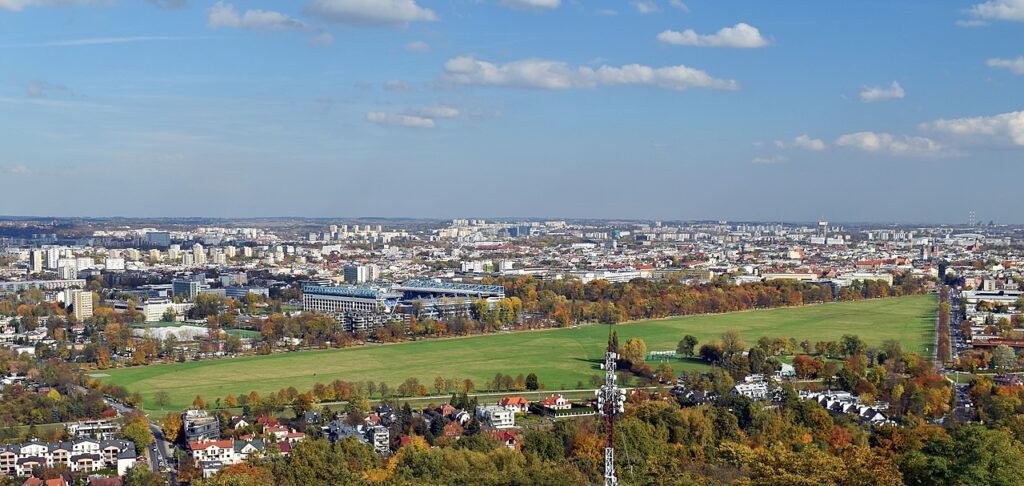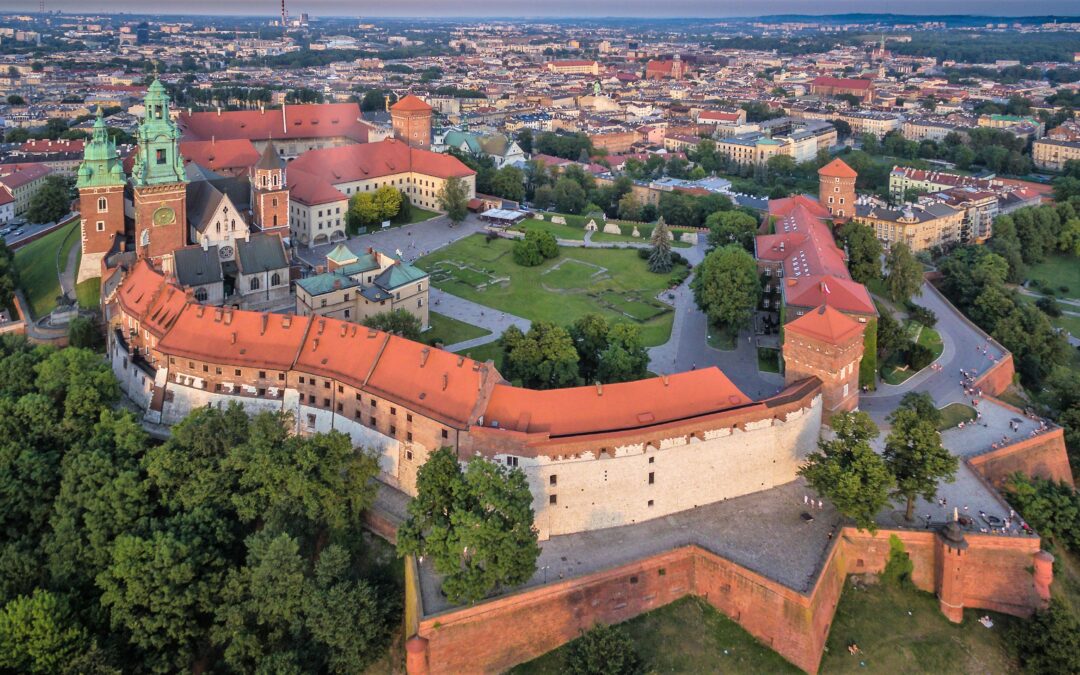Kraków is one of the greenest cities in the world, according to a new international ranking that analyses the use of urban space.
The Husqvarna Urban Green Space Index (HUGSI), which turns satellite image data into various green space metrics, placed Kraków fifth in its ranking of 155 cities worldwide. Ahead of it were only Charlotte, NC (USA), Durban (South Africa), Vilnius (Lithuania), and Dortmund (Germany).
Kraków’s mayor declared his satisfaction that the city’s policies were being appreciated. But some city councillors and environmental activists expressed scepticism at the index, arguing that Kraków has been overdeveloping in recent years, and that much of its green space is inaccessible.
#Krakow #EKOrEWOLUCJA #zieleń 🥉🌲🌳💚Kraków 3 w Europie i 5 na świecie wśród 155 miast umieszczonych w #ranking.u #HusqvarnaUrbanGreenSpaceIndex (HUGSI).
To porównanie procentowego udziału zieleni w metropoliach na podstawie zdjęć satelitarnych.🛰️@zielen_krakow pic.twitter.com/fuc00EOThR
— Kraków (@krakow_pl) February 22, 2021
The ranking found that 57% of Kraków’s urban space is green, with trees covering 37% and grass 20%. Each resident enjoys an average of 207m² of free space, compared to less than 135m² in Poland’s capital, Warsaw.
Wrocław and Warsaw, the only other Polish cities to be analysed, took 22nd and 23rd places respectively, with an overall score over 5 points short of Kraków’s 76.92 out of 100.
Kraków’s main green space is Błonia Park, which at 48 hectares (119 acres) is one of Europe’s largest city centre meadows. The area has become known for masses given there by each of the last three popes.

Błonia Park (photo: Wikimedia/Zygmunt Put (under CC BY-SA 4.0)
The adjacent Jordan Park was one of the first publicly accessible gardens of its type in Europe. Kraków UNESCO-listed Old Town is also surrounded by Planty, a series of 30 gardens following the route of the city’s former defensive walls.
However, much of Kraków’s green space is privately owned, particularly by the church. The city has also been synonymous with Poland’s air pollution problem, although it has been pioneering efforts to deal with it, and has noted improvements since banning burning of coal and wood.
Jacek Majchrowski, Kraków’s mayor for almost two decades, welcomed the city’s high place in the ranking. “This is our joint great success, as many beautiful cities from the whole of Europe are below us,” he said. “It confirms my view that the path on which Kraków is developing is the right one.”
“We are very pleased by this high place in the ranking for the level of greenery in the city…which in a sense confirms the research the city has carried out,” added Piotr Kempf, director of the city’s parks and greenery department.
“Of course, we remember…that these are not only [green] areas accessible to residents, but also for example monastery gardens,” said Kempf. “But we are pleased that despite the intensive development that Kraków has been undergoing, we still have a lot of green space.”
However, Łukasz Maślona, a city councillor representing the Kraków for Residents group, said that although “the statistical data might look good from space, when we come down to Earth, the situation doesn’t look so good
“Since 2015, an area corresponding to 275 football pitches has been built on in the city centre,” Masłona added. Another councillor, Michał Drewnicki from the Law and Justice (PiS) party, agreed that the real story is less rosy.
“While Kraków still has green spaces, the trend is to simply destroy the majority or a large part of these places friendly to residents,” he told Gazeta Krakowska. “The ranking might show the past state, but the future does not look so bright.”
Mariusz Waszkiewicz of the Kraków-based Society for the Protection of Nature said that it would be worth analysing how much of the city’s green spaces are on private land.
“It will probably turn out that most belong to private individuals and residents cannot use them,” he said. “The statistics would be terrible and there would be nothing to boast about then.”
Kraków is one of 16 candidates – including four from Poland – bidding to be named the European Green Capital for 2023, having placed fifth in the competition for 2022.
Qualifying for the shortlist “was a signal that the initiatives we are undertaking aiming to improve residents’ quality of life are the type of long-term strategy that contemporary cities should follow”, said Kempf.
Main image credit: Grzegorz Jemołaj/Wikimedia (under CC BY 3.0)

Ben Koschalka is a translator, lecturer, and senior editor at Notes from Poland. Originally from Britain, he has lived in Kraków since 2005.




















